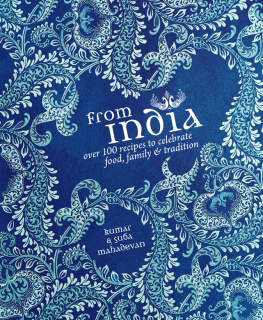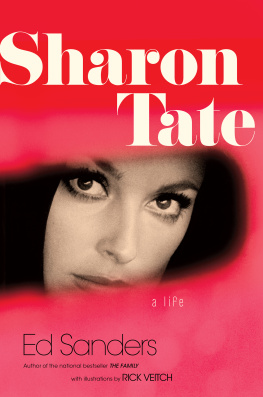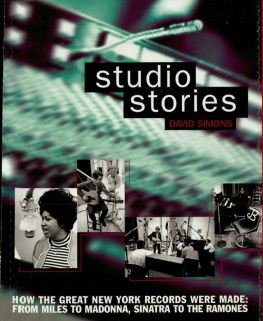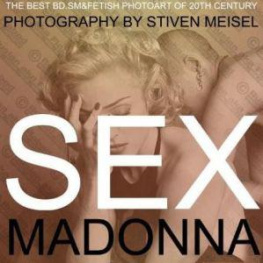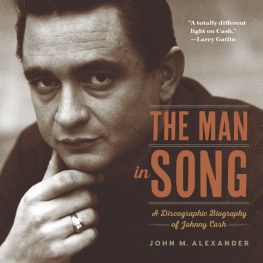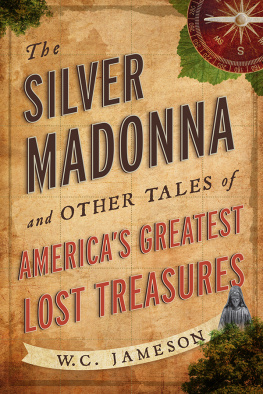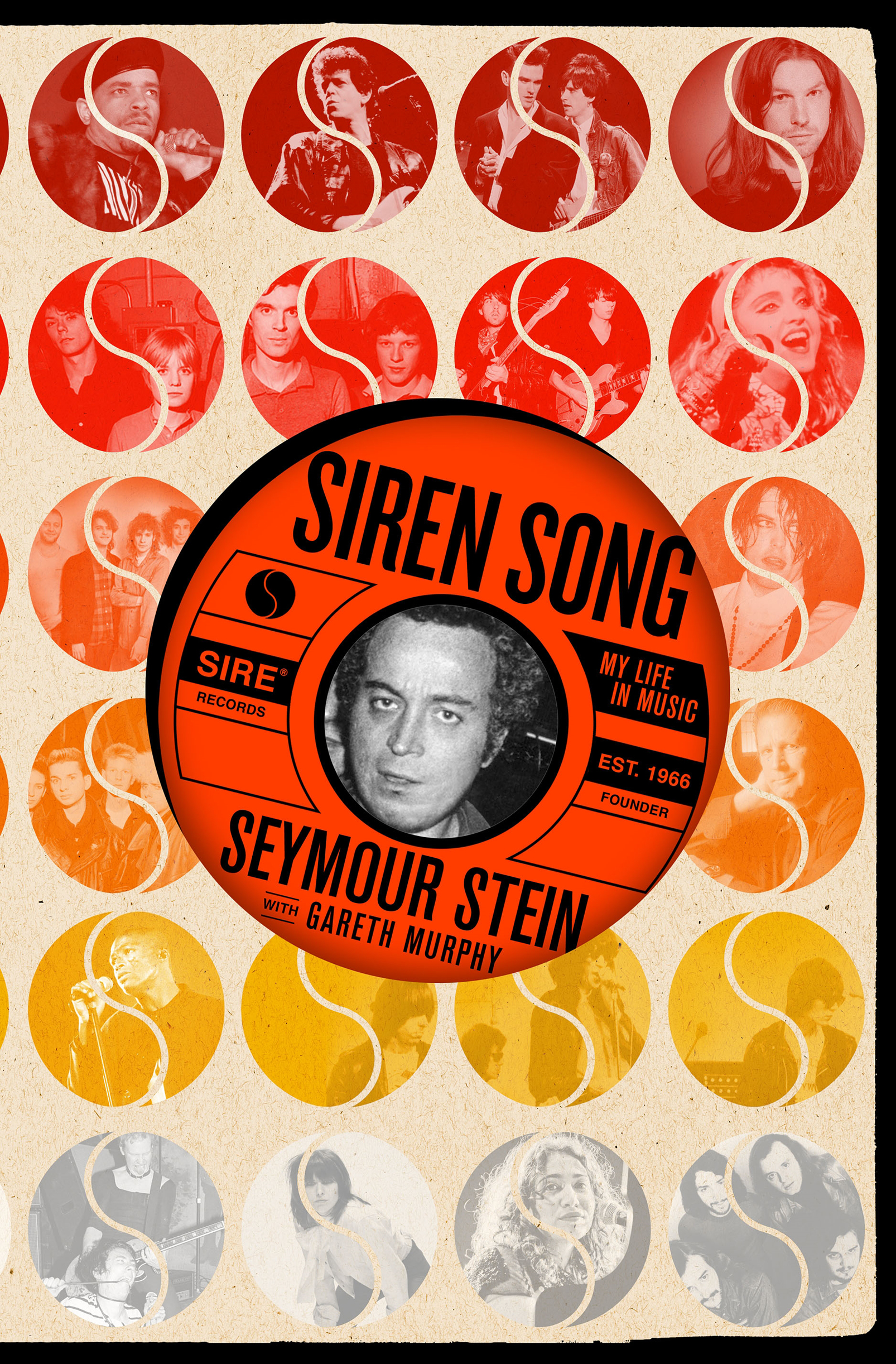Contents
Guide
Pagebreaks of the print version

The author and publisher have provided this e-book to you for your personal use only. You may not make this e-book publicly available in any way. Copyright infringement is against the law. If you believe the copy of this e-book you are reading infringes on the authors copyright, please notify the publisher at: us.macmillanusa.com/piracy.
Siren Song is dedicated to my beautiful daughters, Samantha and Mandy, to my dear friend, Richard Gottehrer, and to the incomparable Syd Nathan.
Samantha was taken way too soon, on February 8, 2013, after a long and brave battle with brain cancer, leaving behind a most beautiful and brilliant young daughter, Dora Wells, and scores of friends who flooded the chapel at her funeral.
My younger daughter, Mandy, a film producer / director, is a constant source of inspiration, whose help and support while writing my story was invaluable. She also took on the responsibility of finding and selecting the photos for the book from noted photographers Bob Gruen, Roberta Bayley, and Bobby Grossman, as well as some family photos, most of which were taken by my dear late cousin, Brian Weisberg.
Richard Gottehrer and I started Sire together and were partners for seven years, which were among the roughest but also some of the best. Richard had already built up quite a name as a songwriter or producer on such hits as My Boyfriends Back by the Angels, Hang On Sloopy by the McCoys, Giving Up on Love by Jerry Butler, and his own band with Bobby Feldman and Jerry Goldstein, the Strangeloves, with I Want Candy. Richard is probably the closest thing I ever had to a brother, and our friendship has endured for well over half a century. Im being honest and fair when I say I dont think I couldve done it without him. Much love and many thanks to him and his lovely wife, Anita.
Syd Nathan was far and away my greatest mentor. The founder of King Records in Cincinnati, he was a music man through and through. Syd saw something in me, and it was that belief and the training and knowledge he passed on that saw me through, especially during those earliest and toughest years at Sire Records, and right up until today. Ive tried, throughout my career, to pass on what I have learned and mentor and help in any small way to ensure that great music men move forward and take on the responsibility as mentors to ensure the continued growth, importance, and success of music around the globe. That, above all, was my main purpose in writing this book.
I cant imagine a world without music.
The best songs of every generation make society stand up and walk into the light. In my own lifetime, Ive seen how popular music has helped improve human rights, racial equality, sexual equality, and inspired so much love and hope where once there was only ignorance and injustice.
Songs have influenced the course of modern civilization, as in the case of La Marseillaise, written soon after the French Revolution. Unlike The Star-Spangled Banner, written nearly forty years after the American Revolution, La Marseillaise was a battle cry for French citizens to rise up and defend the first Republic from invading tyrants. Or consider Over There by George M. Cohan during World War I. Also, on the British side, Keep the Home Fires Burning, by Ivor Novello. Two of Americas biggest national holidays, Fourth of July and Memorial Day, celebrate our freedoms and our fallen soldiers in war. What is life all about except for freedom? Theres no denying: it took wars to win them.
I remember participating in several civil rights protests and singing We Shall Overcome. That song and others helped to change so many peoples minds and lift the civil rights movement into national consciousness. Eve of Destruction by Barry McGuire was another. Like a Rolling Stone and so many songs by Bob Dylan, The Sounds of Silence and America by Simon & Garfunkel, Woman by John Lennon, Teach Your Children by Crosby, Stills, Nash & Young, and I Am Woman by Helen Reddy, all carried these classics important messages. And so did a Sire release, Scatterlings of Africa by Johnny Clegg and Juluka, a racially mixed band from South Africa during the last days of apartheid back in 1982.
The inspiration to write the story of my life in the music business was stirred in large part by concern over the decline in sales and what appears to be a dwindling interest in pop music, culturally. Music has played a central role in life, history, and religion for thousands of years. Its bigger than any of us, and it belongs to us all.
Im the man who signed the Ramones, Talking Heads, Madonna, the Pretenders, the Dead Boys, the Replacements, Ice-T, Brian Wilson, k.d. lang, Lou Reed, Throwing Muses, and many more. Ive also been the indie communitys number-one transatlantic operator. Across fifty years of high tides and economic troughs, Ive tracked down and shipped into America a whole bloodline of British bands, from the Climax Blues Band and Barclay James Harvest to Depeche Mode, Echo and the Bunnymen, the Cult, the Smiths, the Undertones, the Rezillos, M, the Cure, Madness, the English Beat, Soft Cell, Yaz, My Bloody Valentine, Ride, Primal Scream, Seal, Aphex Twin, and many others.
Sire is my label, still afloat, still trading, and just celebrating its fiftieth anniversary. How Im still alive is the greatest mystery of all. Yes, Im still hobbling around the deck of the good ship Sire, refusing to give up on the giant beast that almost killed me all those years ago.
Before I begin my story, I have to warn you that I have no easily definable skills or talents. Im a hit man, a record business entrepreneur. But what Im not is a producer like Phil Spector or Quincy Jones. I cant play any instrument, I cant operate a studio, and I definitely cant abracadabra something into a gold disc. My exact job description is A&R artists and repertoire , the old show business term for talent hunting. But the word I tell myself when I look in the mirror is fanatic . What I really am is an extremist. Every happy accident I provoked in pop music happened as a result of my zeal bumping into originals whose lucky stars only needed to be seen, believed in, and, most of all, supported.
And because I wasnt a musician with any formal notion of technique or virtuosity, I was often able to spot the genius black sheepthe rejects and mavericks who couldnt sing or play by conventional standards but who possessed something unique the world was waiting for. If my life and legacy means anything, I hope its something about so-called losers playing to their strengths and winning big. Ive been wrong far more times than Ive been right, but Im still here.
I still dont know if the ability to spot talent in others actually counts as a talent in itself. The one weird gift I do seem to have is a photographic memory, which, strange at it seems, is how I developed an ear. Since I was a boy, Ive kept devouring names and adding to a personal collection of old tunes the world has long since forgotten. My head is a giant jukebox. Its also a ghost train of long-departed showbiz characters who Ive never let die. Theyre all in here, screaming down telephones and cracking jokes. I can impersonate every Ahmet, Syd, and Jerry down to their accents and mannerisms. You see, I always saw the music business as something between comic folklore and an adopted family. And the more I learned from the old school, the more clearly I could see the new one walking past me on the street.






